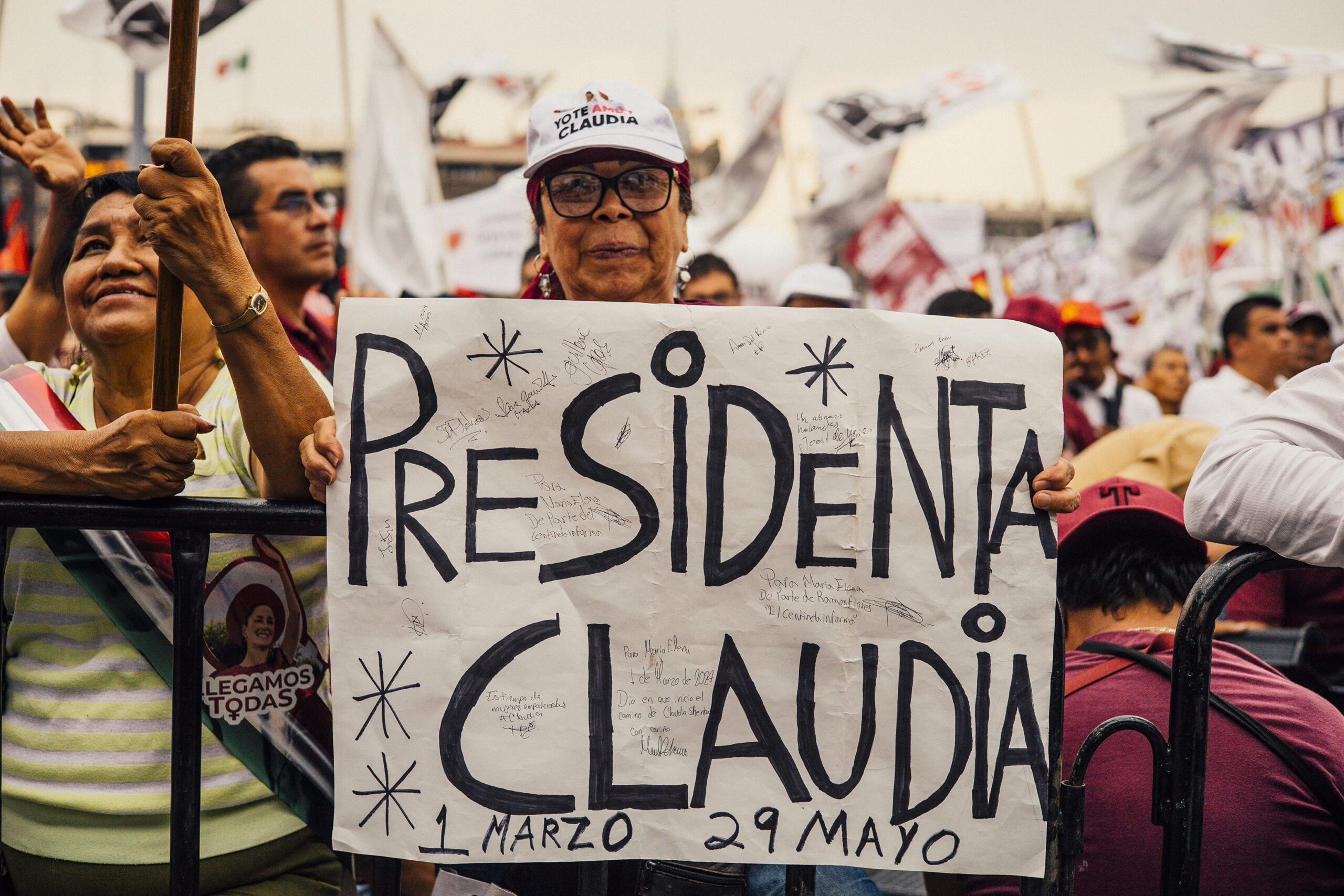The Magnitude of a Historic Election

This editorial originally appeared in Spanish in La Jornada on June 4, 2024. It was translated by Jeffrey Hermanson.
36 hours after the closing of the polls in last Sunday’s elections, there are already solid elements to measure the scope of the popular verdict. First of all, we must mention the very large margin of victory of Claudia Sheinbaum Pardo, presidential candidate of the Let’s Keep Making History coalition, who surpassed Xóchitl Gálvez her competitor on the right wing, grouped in the Fuerza y Corazón por México front, by more than 30 percentage points. With almost all of the tallies computed by the Preliminary Electoral Results Program (PREP) of the National Electoral Institute, Sheinbaum has more than 33 million votes in her favor, which makes her presidential candidacy the most voted in history and monopolizes almost 60 percent of the votes, giving her a mandate without precedent since at least since 1982 and, consequently, incontestable legitimacy and a wide margin for the exercise of Executive Power.
On the other hand, the electoral process still underway has had an additional dimension as a referendum on the national project that was launched in 2018 by President Andrés Manuel López Obrador and that the presidential candidate of his party has promised to continue as the “second floor” of the Fourth Transformation. It is evident that the support given to Sheinbaum by almost two-thirds of the electorate is also a massive show of approval for the current administration and its government policies, particularly those of social welfare and regional development.
To the above it must be added that the citizens, by giving the ruling coalition a qualified (2/3) majority in the Chamber of Deputies and a proportion very close to two thirds in the Senate of the Republic, have given their approval to the set of constitutional reforms advocated both by the outgoing president and by his very probable successor and which are known as “Plan C”. Such reforms refer, first of all, to the indispensable reconfiguration of the Judicial Branch, which has not only become a trench of conservatism to prevent the application of López Obrador’s government policies, but has reached such a level of decomposition that it represents, today, the main bastion of impunity in the country; Likewise, the required modifications concern the reform of the electoral organizations and the party regime. The INE, the state electoral organizations and the Electoral Tribunal have experienced a hypertrophy of structure and functions, are absurdly expensive and have disproportionate powers that violate the autonomy of party organizations and fundamental rights and freedoms.
On the other hand, the enormous margin of electoral victory for Morena and its allies – the Workers’ Party and Green Ecologist parties – not only creates favorable conditions to carry out the aforementioned reforms, but also opens the possibility of dismantling the perversions introduced in the Constitution between 2013 and 2014 in various areas. One can think, for example, of sweeping from the Constitution and the laws all vestiges of the so-called educational reform imposed by the presidency of Enrique Peña Nieto and eliminating the aspects of the energy reform that are most harmful to the country, public finances and energy sovereignty.
On the opposite side, the National Action, Institutional Revolutionary and Democratic Revolution parties obtained the worst electoral results in decades, in the case of the first, and in their entire history, in regards to the second, which went from third to fourth place in six years. Worse still, on June 2 the PRI and the PAN together had just 27.9 percent of the vote, while in 2018 they achieved, separately, more than 38 percent. As for the PRD, PREP’s numbers indicate that it will probably lose its registration and will consequently disappear from political life.
It is clear that, in the absence of its own viable project, the right limited itself in this political campaign to vilifying the Fourth Transformation and deceiving its voters and itself with the idea of an electoral victory for which there was no basis, other than predictions prepared by advertising companies disguised as pollsters. The results are visible: the partisan representations of that neoliberal and oligarchic right, its intellectuals and commentators and its civil organizations are today experiencing a profound and irreparable defeat.

